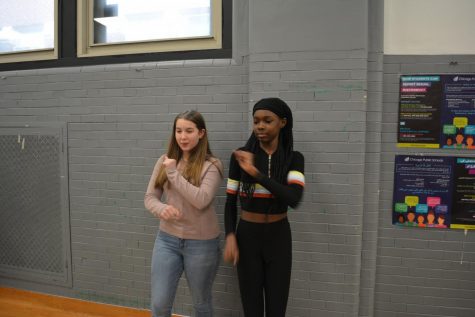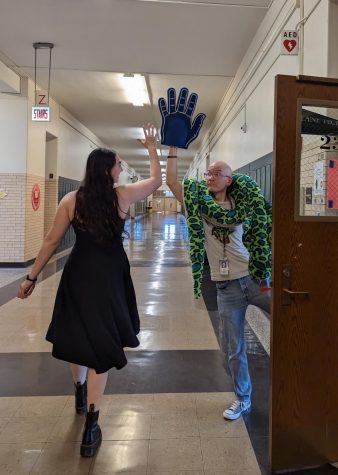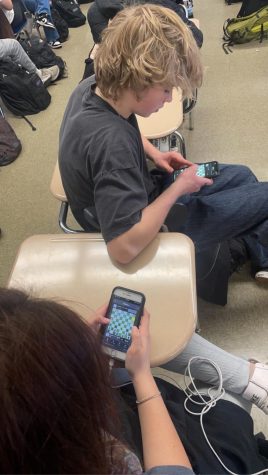TikTok on the clock: Will the party ever stop?
February 14, 2020
Fifteen-second video clips, remixes of popular songs, ordinary 15-year-olds becoming overnight sensations accumulating tens of millions of views. The only platform capable of such a task is TikTok.
TikTok has attracted an abundance of users from across the globe — the app has been downloaded more than 750 million times worldwide, according to CNN.
Lane is no exception to this trend; enough students use it passionately to form an active TikTok club here at school.
Both Leila Stallone, Div. 057, and Victoria Korus, Div. 070, cite TikTok as a great way to fill time when they are bored or have nothing else to do.
Despite the app’s popularity, TikTok’s success is overshadowed by the numerous issues regarding the usage of user data, user data privacy, video censorship and skepticism about its relationship with the Chinese government.
According to Check Point, an Israeli cybersecurity firm, TikTok had serious weaknesses in its programming that potentially allowed hackers to access sensitive user data. The holes in the app have since been patched but nevertheless leave some with suspicious feelings about TikTok.
Accordingly, The New York Times reported that several branches of the United States military have restricted the use of TikTok by its personnel, citing data privacy concerns.
TikTok also had to shell out $5.7 million in settlement money after the Federal Trade Commission found that the app was illegally collecting minors’ data.
To make matters worse, ByteDance, the company that owns TikTok, is located in China, causing numerous accusations of censorship of anti-Chinese nationalist views, according to The New York Times.
According to the Guardian, TikTok ordered their moderators to remove certain videos mentioning topics such as Hong Kong independence, the banned religious group Falun Gong, Tiananmen square and other sources of anti-Chinese nationalism.
While Stallone does not agree with the censorship, she understands why it exists.
“It is bad that [TikTok] is doing that with censorship but it is their app and they can do whatever they want with their app,” Stallone said.
Korus says these controversies will not affect her usage.
“I’ll probably use it the same, like, it’s an addicting app,” Korus said. “I could spend hours watching videos and I don’t even realize how long I’ve been on the app for.”
Korus is a verified user of TikTok, a status symbol in the form of a white checkmark next to the username that she had earned years back, when the app was still known as Musical.ly.
Officially, verification is used to let the user know the account belongs to the person it claims to represent. This feature is crucial for celebrities trying to distinguish their account from the numerous fan and poser accounts.
However, there are a certain subset of users that do not necessarily fit the title of a celebrity but still require a verification because of how popular their account is. Korus is one of them.
According to Korus, being verified means that the user is frequently posting videos that the developers of TikTok view as content that would be appealing for the rest of the user base.
Stallone and Korus spend the majority of their time on the “For You” page, instead of making videos. The “For You” page is a feed of videos curated specifically for the user based on previously liked posts, followed accounts and more.
“I could spend hours watching videos on the “For You” page because they are so funny,” Korus said.
Stallone shares a similar outlook on being unable to delete the app.
“[TikTok is] such a big part of teen culture right now and I want to be on the same page with the mainstream,” Stallone said. “I am big on making sure my privacy is safe but at this point right now I don’t know if I can delete TikTok.”

Students Mikayla Phillips and Analiese Corral perform
the popular TikTok dance “Renegade” during their fourth period lunch.






